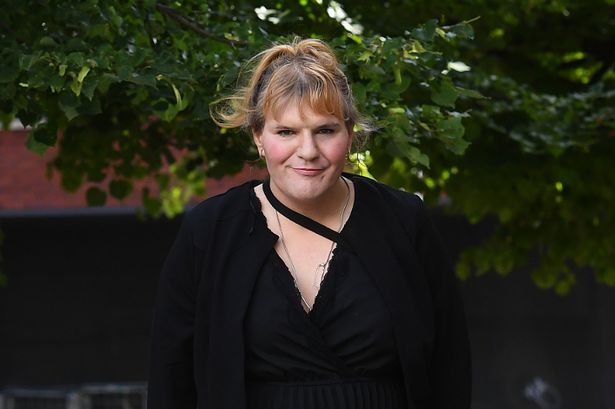Politics
Ex-Tory MP Receives Community Order for Harassment of Ex-Wife

A former Conservative MP, Kate Wallis, has been handed a community order for harassing her ex-wife, Rebecca Lovell. The decision was made by Cardiff Magistrates’ Court after the court was presented with a series of abusive messages sent by Wallis to Lovell. The harassment included a demand for £350,000 to be deposited into her bank account within 15 minutes.
Wallis, who represented Bridgend in South Wales from 2019 until 2024, has become notable for being the first openly transgender MP in the House of Commons. During the court proceedings, it was revealed that Wallis’s actions had profound effects on Lovell, prompting her to install CCTV at her home due to fears for her safety. The couple’s marriage ended in 2020, with their divorce finalised in 2024.
In a victim impact statement presented to the court, Lovell expressed the emotional toll of Wallis’s behaviour. She stated, “This is the hardest thing I have written; for so long I have had to fight against the tide of Jamie’s behaviour, publicly and privately.” Lovell described her previous self as “destroyed” and noted that the past six months had been “utterly devastating.”
While Wallis opted for a black dress during the hearing, she appeared subdued as Lovell’s statement was read, highlighting the serious nature of the situation. Narita Bahra KC, representing Wallis, argued that it was unfortunate the case reached the court, criticising both South Wales Police and the Crown Prosecution Service for not resolving the matter outside of legal proceedings.
Bahra further asserted that Wallis had been struggling with mental health issues during the period of the harassment, exacerbated by her transition. The court heard that Wallis was diagnosed with PTSD, a depressive disorder, and an adjustment disorder, contributing factors to her behaviour.
District Judge Rhys Williams ultimately issued Wallis a 12-month community order, requiring her to complete 12 days of community service. In addition, Wallis was fined £1,264. Although she initially denied the charges, she changed her plea to guilty when allegations of driving past Lovell’s home were removed from the case.
This case sheds light on the complexities surrounding domestic harassment and the impact it has on victims, underscoring the importance of addressing such issues within the legal system.
-

 World2 months ago
World2 months agoCoronation Street’s Shocking Murder Twist Reveals Family Secrets
-

 Entertainment2 months ago
Entertainment2 months agoAndrew Pierce Confirms Departure from ITV’s Good Morning Britain
-

 Health5 months ago
Health5 months agoKatie Price Faces New Health Concerns After Cancer Symptoms Resurface
-

 Health2 weeks ago
Health2 weeks agoSue Radford Reveals Weight Loss Journey, Shedding 12–13 kg
-

 Entertainment6 months ago
Entertainment6 months agoKate Garraway Sells £2 Million Home Amid Financial Struggles
-

 Entertainment5 months ago
Entertainment5 months agoAnn Ming Reflects on ITV’s ‘I Fought the Law’ Drama
-

 World3 months ago
World3 months agoBailey Announces Heartbreaking Split from Rebecca After Reunion
-

 Entertainment2 months ago
Entertainment2 months agoDavid Jason and Nicholas Lyndhurst Eye Reunion for Only Fools Anniversary
-

 Entertainment3 months ago
Entertainment3 months agoCoronation Street Fans React as Todd Faces Heartbreaking Choice
-

 World3 months ago
World3 months agoEastEnders’ Nicola Mitchell Faces Unexpected Pregnancy Crisis
-

 Entertainment2 months ago
Entertainment2 months agoBradley Walsh Sparks Strictly Come Dancing Hosting Speculation
-

 Entertainment2 months ago
Entertainment2 months agoTwo Stars Evicted from I’m A Celebrity Just Days Before Finale





















